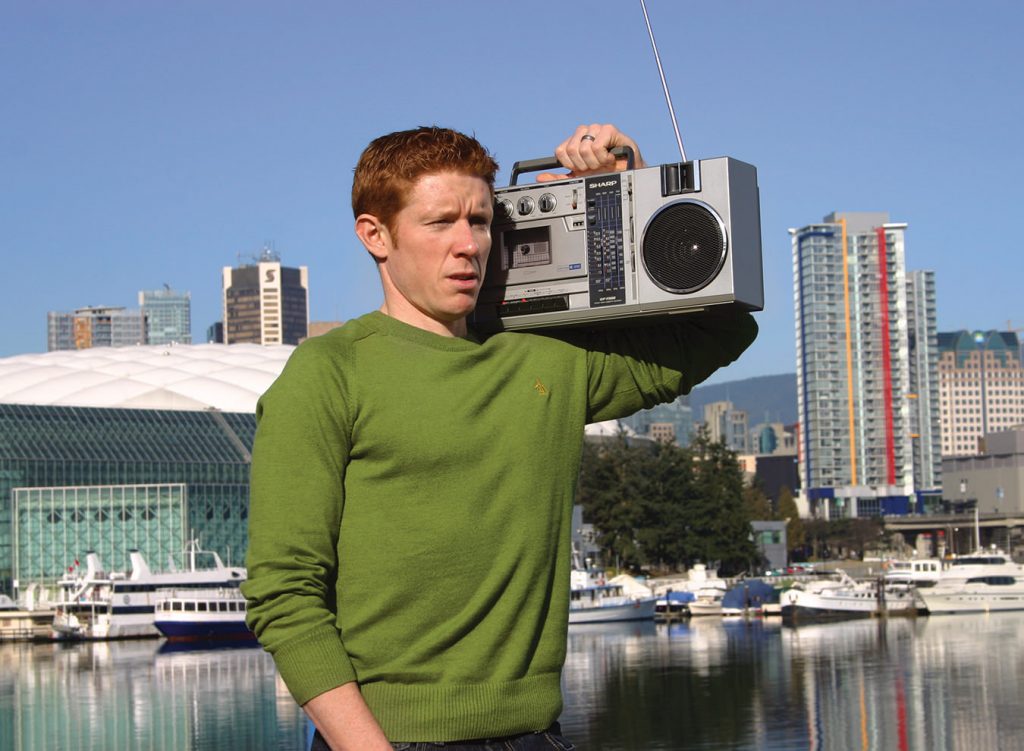“I’ll never listen to talk radio.” I can still remember the words rattling around my cranium. I was in the first of my two years at BCIT’s broadcast journalism program, and there was an expectation that we would keep ourselves up to date on relevant issues through a variety of mediums, including talk radio. I was certainly willing to fulfill those obligations in order to succeed in my program, but the thought of becoming a regular listener? Please. All I needed was my music, and nothing was going to change that—or so I thought.
The irony of my current profession, eight years later, is not lost on me. While news-focused programs never resonated with me, sports radio most certainly did. I was a listener long before I was an employee, and it’s been interesting to witness the transformation of the TEAM 1040 over the past seven and a half years. What began as established American programming, interrupted by occasional local programming, has morphed into almost the opposite. At the outset, numerous hurdles stood in the way of legitimacy, including a lack of local properties. The Canucks and Lions were down the dial at CKNW, and Vancouverites knew where to find their favourite teams on game days. Though the TEAM would exponentially increase its viability in the market by acquiring the Lions in 2004 and the Canucks two years later, the real foundation of the station was laid prior to the arrival of either. It was the hiring and subsequent development of personalities that cemented 1040’s place in the market.
When talk radio works, it is a well-proportioned blend of information and entertainment. In the age of the Internet, facts are available everywhere. Fans know who scored, what move was used and what was said in the post-game interview long before they turn on the radio in the morning. Whereas the job of yesteryear’s sportscaster was to inform listeners of such details, modern hosts must identify the compelling components from last night’s game and tell you why they are important. Sure, the goal was nice, but did you see how he taunted the goaltender afterwards? Should the league encourage or discourage those kinds of antics? These are the types of questions that elicit reaction from all types of sports fans: the former player, the stats junkie, the homer. The issues need not always be controversial, but they should, at a minimum, engage the listener in a way the box score or the highlight reel cannot.
The ability to generate such debate while weaving in anecdotes, interviews and levity over the course of a program is what separates the good hosts from the bad, though listeners use different criteria to distinguish the two. Popular hosts may also be good ones, but the best in the biz are quite often despised by many. The fascinating reality, however, is that people tune in to good shows whether they are fond of the hosts or not. In fact, there is something intrinsically appealing about listening to a person whose opinion usually differs from your own. Turns out it’s fun to have a good natured argument, whether it’s face to face or simply talking back to a voice in a radio. That voice must exude confidence and knowledge if it is to be accepted by an audience, and it must be versatile enough to entertain in a variety of manners.
Continued convergence of the mediums of radio, television and print dictates that versatility will become even more important going forward. The opportunity for cross-promotion is not lost on the corporate entities that oversee these divisions, and the lines are blurring more each day. The Internet has fused all three specialties, as online stories are often supplemented by supporting audio and video files. Simulcast sports radio has become regular television programming over the past decade. And then there’s the crossover between sports and pop culture, with more athletes than ever becoming celebrities for reasons beyond their primary profession. Even the most ardent sports fans want to be kept in the loop on big stories in the entertainment world. Perfecting the juggling act between information and entertainment is an art that will only become more complex as the media landscape evolves. Dealing with variety in material and medium will come to define tomorrow’s broadcaster, the same way a rich deep voice once did his, or her, predecessor.









